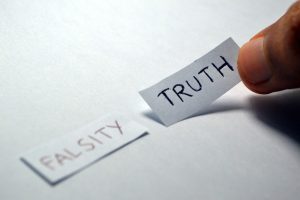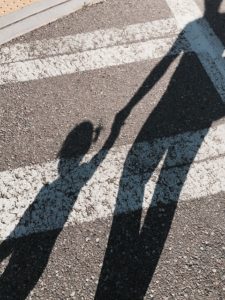 Listen Up!
Listen Up!
Recently Jennifer Bodenham, a team development coach, and I sat down to create a 3-part podcast series about Boundaries. Throughout these podcasts, we explore why we need boundaries, what they are and even share a concrete exercise that will help you can get started towards living a life that is more kind and joyful.
The wonder and value of self-kindness, health and maintaining connection with others, even when it starts to get difficult are mutually possible. The second podcast In Conversation with Jen about Boundaries for Healthy & Joyful Living – Part Two is now available. And in case you missed the first one, In Conversation with Jen about Boundaries for Healthy & Joyful Living, listen to it first to catch the flow of our conversation. The final podcast will be available next week.
I hope you enjoy this series and feel free to share them with others.
Listening to our Bodies: A Path to Relating Peacefully
Recently I was involved in a conversation in which we found ourselves sharing what we had learned about listening more closely to the cues our bodies were telling us. We each had a story of a physical injury that occurred because we didn’t listen to our bodies when it essentially said ‘enough.’ …Sigh…
It compelled me to reflect back to a workshop with Dr. Gabor Maté, author of When the Body Says No, where he identified key characteristics of the stress-prone personality including:
- Difficulty saying No;
- Automatic and compulsive regard for the needs of others without considering one’s own;
- Rigid and compulsive identification with duty, role, and responsibility rather than with the true self;
- Habitual suppression or repression of healthy anger and assertion.
As I read this list, a couple of things stand out for me. This list is about lies we tell ourselves and about compulsive behaviours to please others or to live within the status quo we assume others expect of us. –And we wondered why we got sick or injured when we ignored our bodies’ cues?
 What struck me even more as I began to examine my own life is how we find it acceptable to lie with casual regularity. We lie to others when we say yes to them, but we really want to say no. We lie to ourselves saying we aren’t worthy enough and so we push onward when our bodies need to relax. We lie about our real needs and who we really are, compulsively rushing to the needs (and perhaps drama) of others (or our own). We lie about feeling angry at the boundaries that have been trespassed and then stay silent and perhaps punishing our partner or child or friend because of all the feelings we have lied about inside.
What struck me even more as I began to examine my own life is how we find it acceptable to lie with casual regularity. We lie to others when we say yes to them, but we really want to say no. We lie to ourselves saying we aren’t worthy enough and so we push onward when our bodies need to relax. We lie about our real needs and who we really are, compulsively rushing to the needs (and perhaps drama) of others (or our own). We lie about feeling angry at the boundaries that have been trespassed and then stay silent and perhaps punishing our partner or child or friend because of all the feelings we have lied about inside.
Lies create stress and conflict, both internal and external. Conflict disrupts our peace and our health. When we lie to ourselves and disregard the messages our bodies send us, we inflict a hidden emotional stress on ourselves and our bodies.
Just as good relationships with others keep us healthy and can heal us, good relationships with our bodies keep us healthy and can heal us. Good relationships require healthy boundaries that support our  sense of true self and protect us against what drains our essential vitality. Healthy boundaries are like a good immune system—protects against what takes life and sustains our essence so we can participate in our purpose and what is truly life-giving.
sense of true self and protect us against what drains our essential vitality. Healthy boundaries are like a good immune system—protects against what takes life and sustains our essence so we can participate in our purpose and what is truly life-giving.
We are hard-wired to need closeness, to need connection and belonging with others. We are equally hard-wired to need to express ourselves, to know who we are and then to be seen and respected. In other words, we are hard-wired to be authentic. When these two needs are in conflict or when they are incongruent over time, we are at war with ourselves. This war leads to illness. As Dr. Maté writes, “illness is not random”.
If you are like me, listening to your body is a daily task I have to remind myself to do. What is it my body needs to eat? What kind of exercise does my body need today? What decision do I need to make in my work that is congruent with my life purpose so I can stay healthy? What anger must I be honest about and what must I speak up about in my intimate relationships to increase my own sense of inner peace?
If you struggle with finding the joy of the body you have and so you ignore it even more. If you find yourself suppressing your own needs to look after other’s needs making you depressed, injured or always living in chaos, consider my upcoming two-day workshop on February 24-25th, 2017 – Self Kindness Response: Healthy Boundaries for Joyful Living!
The following comment by a workshop participant last fall really speaks to the substance and richness of this workshop. Please consider it for yourself too!
Just taking the boundaries workshop was an act of kindness towards myself. I learned to tune into my body to get a sense of what is a healthy boundary for me. Instead of going into my head, I feel how my body feels about something. There’s no arguing with the body! Even if there is another way to assess a situation and respond, it doesn’t matter because my body is telling me MY truth, MY healthy boundary in that situation, and that’s all that counts. I love the sense of certainty this has given me because I know my body is trustworthy. I have gained a stronger sense of myself and a feeling of being on solid ground. It was also helpful to work with a partner afterwards to keep working on what we’d learned at the workshop. Such a beautiful workshop space, too! T.H.
Peace & Namaste,
Shirley Lynn


